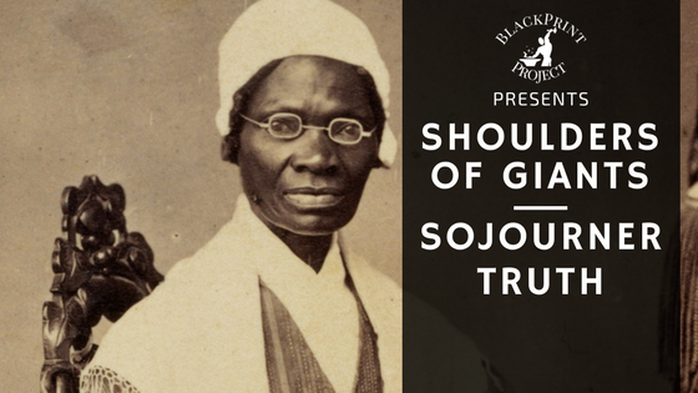|
February 19, 2015
|
From the Inkwell of: Bartholomew J. Worthington III
|
|
Born - Date Unknown, 1797
Died - November 26, 1883 The woman who would become one of the foremost leaders of the Abolitionist movement was born a slave in a still-Dutch speaking rural region of New York in 1797. As one of 17 children born to her parents, her given name at birth was Isabelle Baumfree. Isabelle would be sold several times into early adulthood. As a slave, she would give birth to 4 children, and in 1826, when her owner, John Dumont, refused to follow through on his promise to free her, she would escape to freedom with her infant daughter, Sophia.
A short time after her escape, Truth would discover that her son Peter had been sold illegally to an owner in Alabama, and she would successfully take the case to court to secure his return. It would be the first case in US history of a Black woman successfully challenging a white man in court. In 1843, Isabelle began to go by the self-given name, Sojourner Truth. She would also convert to Methodism and become an outspoken advocate for the abolition of slavery. She joined the Northampton Association of Education and Industry, an organization with a broad reform platform. Though the community would disband in 1846, Sojourner would remain committed to the abolition movement. In 1850, her memoirs, The Narrative of Sojourner Truth, was published, even though Truth herself was not literate. She would use the proceeds from the sale of this book to support her efforts. Truth began to tour with other abolitionist leaders, and soon became a prominent voice for the movement. Some of her positions on women's rights were considered radical, even amongst her peers. In her day, Truth was one of the very few voices calling for political equality for ALL women, in addition to securing civil rights for Black men. During the Civil War, Truth advocated tirelessly for the inclusion of Blacks in the Union Army. In 1864, she would be invited to participate in the National Freedman's Relief Association, and while in Washington DC, she would have the opportunity to meet with President Abraham Lincoln. Even after the Emancipation Proclamation, Sojourner Truth would continue to advocate for issues she was passionate about. She fought to get Washington street cars desegregated; she worked tirelessly to secure land grants for the newly freed slaves; she advocated against capital punishment; she campaigned for prison reform; and she would fight for female suffrage. Throughout her remarkable life, Sojourner Truth would tackle numerous challenges with her indomitable will. Though she would get started on the path of activism later in life, once she got involved, she would commit the rest of her life to combating injustice and inequality. Sojourner Truth died at home in Battle Creek, Michigan, on November 26th, 1883. She would be buried alongside her family at Battle Creek's Oak Hill Cemetery. While she would she the realization of all of her efforts during her lifetime, Sojourner Truth will always be celebrated as one of the foremost leaders of the abolition movement as well as one of the first Black feminists. 3 Lessons
"Its hard for the old slaveholding spirit to die, but die it must."
Sojourner Truth
|
Popular Articles
2014 Quotes
|


